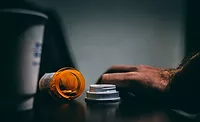HHS awards $101 million to combat the opioid crisis

The U.S. Department of Health and Human Services (HHS), through the Health and Resources and Services Administration (HRSA), awarded over $101 million to combat substance use disorders (SUD) and opioid use disorders (OUD). The awards support 116 organizations in 42 states and the District of Columbia, with many targeting high-risk rural communities.
HRSA's Federal Office of Rural Health Policy awarded $89 million to 89 rural organizations across 38 states as part of the Rural Communities Opioid Response Program-Implementation (RCORP-Implementation). Each RCORP-Implementation grant recipient will use the funding to enhance and expand service delivery for SUD and OUD in rural communities. Awardees will work with rural communities to implement a set of core SUD and OUD prevention, treatment and recovery activities grounded in evidence-based or promising practice models which can be tailored to communities' unique needs. These awards are part of HHS' broader focus on rural health and human service issues through the Secretary's Rural Health Task Force and build on the Administration's commitment to support rural communities under an Executive Order released August 3, 2020.
In addition to the RCORP-Implementation investments, HRSA's Bureau of Health Workforce awarded nearly $12.5 million to 28 organizations to expand access to behavioral health services for families affected by opioids and other substance use disorders. The Opioid-Impacted Family Support Program (OIFSP) aims to increase the number of training opportunities for behavioral health paraprofessionals working with families, and provides tuition assistance for trainees. Today's awardees will recruit and train paraprofessionals to work with youth, including in high-need rural areas across the United States.
"These RCORP-Implementation grants are an essential part of HRSA's overall efforts in helping to combat the opioid epidemic in the rural areas of our country," said HRSA Administrator Tom Engels. "In addition, behavioral health paraprofessionals play a critical role in taking care of youth and families struggling with substance use disorder and opioid use disorder. This HRSA funding gives trainees the chance to learn in the communities and with the families that most urgently need their services."
Looking for a reprint of this article?
From high-res PDFs to custom plaques, order your copy today!







